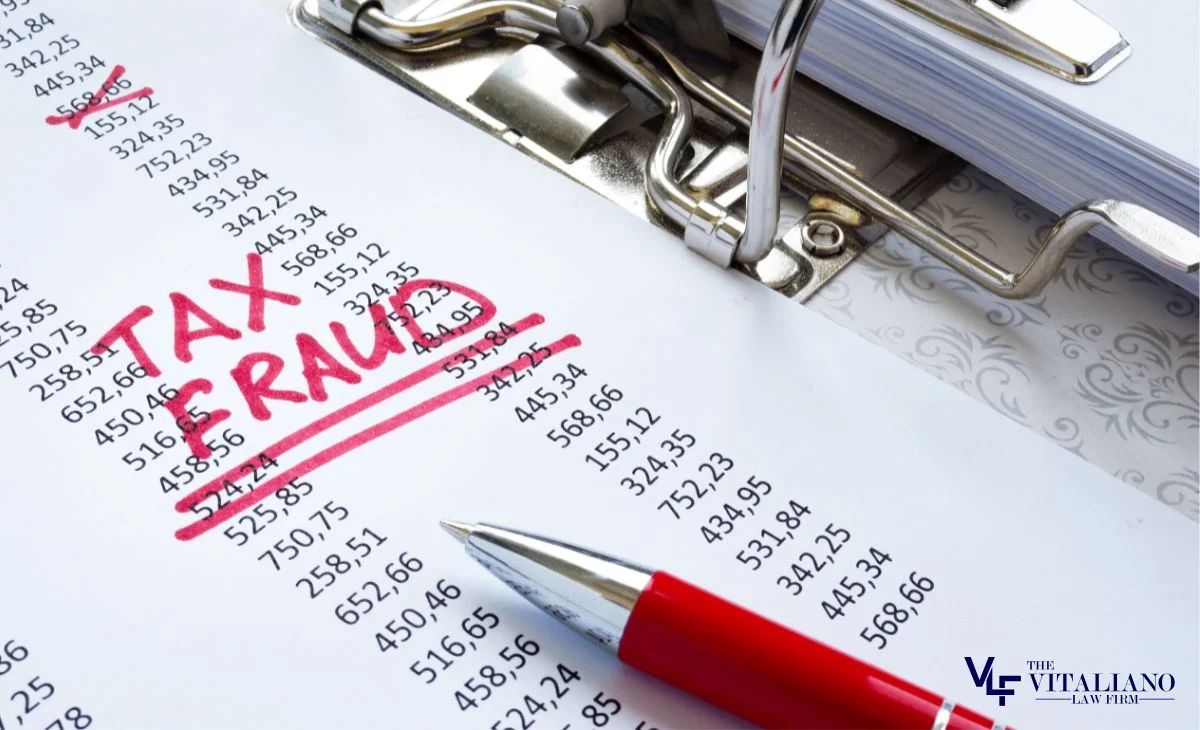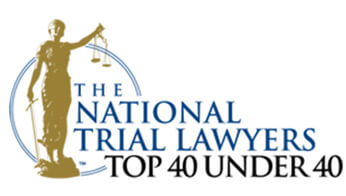Brooklyn Tax Fraud Lawyer

Brooklyn Tax Fraud Attorney
Tax fraud charges can be brought at the state or federal level in Brooklyn. Any person or company facing tax fraud charges can hire a Brooklyn tax fraud lawyer and reduce the financial liability they face. Having strong legal representation can be key to reducing the chances that a company or individual is severely penalized for tax violations.
The Vitaliano Law Firm understands how disruptive tax fraud allegations can be. After reviewing the facts of your case, our lead attorney, who comes from a background as a former prosecutor, can develop a strategy that works to weaken the prosecution’s case.
Why Choose The Vitaliano Law Firm?
Facing tax fraud charges in Brooklyn can be overwhelming, especially with the risk of serious penalties. Our firm understands the stress this places on you. What sets The Vitaliano Law Firm apart is our unique insight — our lead attorney is a former prosecutor with firsthand knowledge of the tactics used to pressure defendants.
Our firm is not intimidated by these strategies, and we can fight to protect your rights by working to achieve the optimal outcome in your case. Tax fraud charges are often the result of an unfortunate misunderstanding by state or federal officials. If you need experienced, aggressive defense for tax-related charges, we are here to help.
Common Examples of Tax Fraud
Tax fraud is a form of white-collar crime because it involves business transactions and is non-violent in nature. Here are some of the more common types of tax fraud that our criminal defense law firm sees every year.
- Conspiracy: Conspiracy to commit tax fraud arises when two or more individuals collaborate to commit tax fraud. One example of conspiracy to commit tax fraud would be when a group of people within a company work together to falsify tax documents. In that case, each participant faces charges not only for fraud but for conspiracy to commit a white-collar crime as well.
- Falsified Statements: Anytime someone submits tax documents to the government, any false information or misrepresentation can lead to serious penalties. Knowingly providing incorrect financial statements or documentation can result in significant state and federal charges.
- Failure to File Tax Returns: Failing to file tax returns, keep adequate financial records, or pay taxes owed can result in criminal prosecution. The IRS has up to six years to investigate and prosecute these failures under the Internal Revenue Code.
- Preparing False Tax Documents: Any professional who knowingly assists in falsifying tax returns for clients, friends, or even family members could be held criminally liable for their actions. Accepting payment to file a fraudulent return can lead to serious consequences for both the tax professional and the taxpayer.
- Tax Evasion: Attempts to avoid paying taxes at the state or federal levels may qualify as tax evasion. This broad charge includes illegally claiming tax credits, inflating tax refunds, or hiding income.
Criminal Defense Strategies for Tax Fraud Defendants
Defending against tax fraud charges requires a comprehensive strategy tailored to the specifics of each case. One common defense is to challenge the intent behind the alleged fraud, as tax fraud requires proof that the defendant acted willfully. If a defendant can show that errors were unintentional or due to a misunderstanding of complex tax laws, it could weaken the prosecution’s case.
Another approach is disputing the accuracy of the financial data used by prosecutors. Tax fraud investigations often involve complex financial records, and forensic accountants can be employed to identify inconsistencies or errors in the government’s analysis. This may include presenting alternative interpretations of the defendant’s financial situation.
A procedural defense may involve challenging how evidence was obtained. If investigators violated the defendant’s rights during the investigation, such as conducting an unlawful search or seizure, the evidence gathered might be excluded from the case.
Negotiating a plea deal is another possible strategy, especially when the evidence against the defendant is strong. In some cases, defendants may reduce their charges or avoid jail time by agreeing to pay restitution or penalties.
FAQs
What Is the 45-Day Indictment Rule in NY?
The 45-day indictment rule in New York refers to the requirement that someone be indicted for a felony charge within 45 days of their arrest. The goal of this rule is to protect defendants from being held if there is not enough credible evidence to support their guilt. Certain factors can extend the 45-day period, such as delays requested by the defense or court scheduling issues.
What Is a Common Defense Against Tax Fraud?
A common and often effective defense against tax fraud charges involves arguing that the defendant did not act with criminal intent. Tax fraud requires proving that the defendant intentionally and knowingly committed the offense, such as filing false returns or evading taxes. The defense may argue that the errors were accidental and not intended to break any laws or regulations.
What Is the Most Serious Felony?
In New York, the most serious felony is a Class A felony. These offenses carry the harshest penalties, including potential life imprisonment. Class A felonies include serious crimes like capital murder, drug trafficking, and terrorism. A conviction for this type of crime can lead to a life sentence. Steps taken to reduce a Class A felony to a lower offense can help defendants avoid the most serious NY criminal penalties.
What Is the Least Serious Felony?
In New York, the least serious felony is a Class E felony. These offenses typically carry lighter sentences compared to more severe felonies, with potential penalties ranging from probation to a maximum of four years in prison. Class E felonies include non-violent crimes like low-level theft, forgery, and certain drug-related charges.
Schedule Your Brooklyn Tax Fraud Consultation Today
The mere allegation of tax fraud can have serious implications for your reputation. In a corporate setting, tax fraud charges often extend to multiple employees who may have known about or been directly involved in filing the taxes in question.
No matter the nature of the criminal charges, The Vitaliano Law Firm can help. Our attorney is a former prosecutor who understands state and federal tax laws. To schedule your tax fraud consultation, contact our office today.
Testimonials






